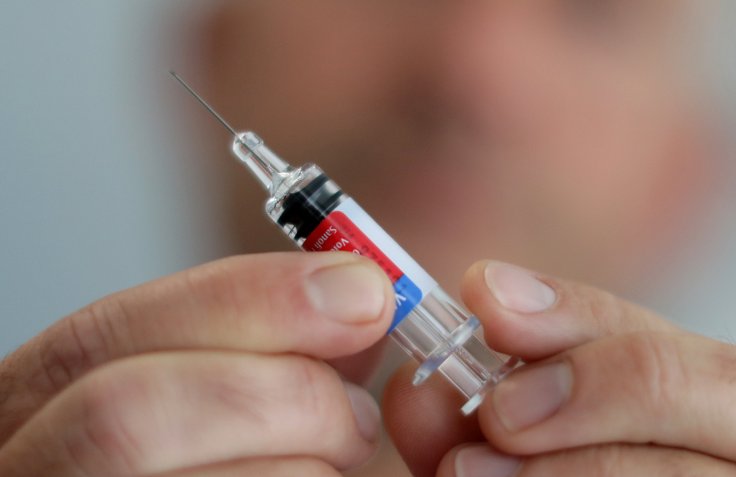
Authorities have been dealing with an HIV outbreak in Pakistan, with more than 700 children tested positive for the virus, after healthcare professionals used syringes out of dustbin to treat patients, reports said.
As per reports, anxiety and distrust in the health system, as well as, scepticism of the country's immunization programs spread after the children in Sindh province of Pakistan in recent weeks were diagnosed with the deadly virus because of the use of unsterilized syringes.
Many other reports have attributed the number of HIV positive children to be more than 900 since April in Ratodero city of Sindh province of the South Asian nation.
Local health authorities were alerted after children fell ill with fevers they could not control, a common early symptom of HIV, and were later tested positive for the virus even as their parents were HIV-negative. They now fear the virus -- unusual among children, and typically contracted through mothers during pregnancy, birth or breastfeeding, may spread AIDS. The infectious disease, usually spread via blood, including used syringes, as well as, with unsafe sexual intercourse, cannot be cured but managed and controlled with medication.
"Initial investigations reveal that used syringes are being repacked, which may not only grow significantly the number of HIV cases but also other diseases," The Washington Post quoted Pakistan's top health official Zafar Mirza as saying.
Health authorities in April had traced the outbreak to a single doctor, and arrested him on the charges of infecting dozens of patients with the virus through dirty syringes, but the doctor's lawyer told CNN that his client was not using infected needles and has been "made into a scapegoat for the larger crisis in the region".
Imtiaz Jalbani, whose six children were treated by the paediatrician, said the doctor "searched through his bin" for an old needle to use on his six-year-old son, later diagnosed as HIV-positive, and upon protest said he was too poor to pay for a new needle. Hundreds of more people soon after were tested positive as the news spread across the province and thousands of people poured into local health centres for an HIV test.
Officials have since shut down clinics deemed unsafe as experts suggested the problem was far beyond one doctor because syringes were commonly reused across the region. Werner Buehler, senior fund portfolio manager at the Global Fund to Fight AIDS, Tuberculosis, and Malaria, did not believe it was "just one syringe or one doctor or just one batch of syringes" that infected such a large number of people, and added it seemed to him "like a widespread practice".
Reusing syringes in medical facilities is widely banned because needles can easily spread viruses such as HIV and hepatitis C between patients, but "syringes are often reused in Pakistan, especially among the poor", explained Quaid Saeed, HIV/AIDS advisor to Pakistan's National AIDS Control Program. Mirza said that Pakistan had in response requested an additional 50,000 screening kits and planned to set up three new treatment centres in Sindh province.
The country even before this outbreak lagged far behind the United Nations' ambitious "90-90-90" goal for HIV treatment and prevention globally under which the UNAIDS by next year aims to have diagnosed HIV in 90 per cent of infected people, provided 90 per cent of them with antiretrovirals, and suppressed the virus in 90 per cent of those treated.
The diagnosis of children in recent weeks posed another challenge of only limited amounts of child-friendly antiretroviral drugs being available as the virus is less common in children than in adults. According to the UN taskforce on HIV and AIDS, cases of HIV have nearly doubled since 2010 to 1,60,000 because of a lack of literacy on the subject and stigma attached to the diagnosis of the virus in people.









